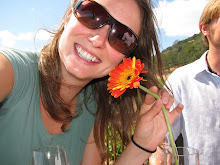The introduction to Unsettling Settler Societies presented the purpose of the book and its organizational strategy. The definition of a ‘settler society’ was also explained. I found it to be very wordy and hard to get through. I normally skim through introductions in order to spend more time on the meat of the book.
Chapter five focused on the United States and its development as a settler society during the years 1590-1990. It was divided up to explain the gender-roles and how they changed in each era in the four main racialized cultures: Native American, Mexican American, African American, and Euro-American. The changing of these relationships was defined by the domination of the Euro-Americans and the fact that they considered themselves full citizens of the new nation while denying other groups the rights they insured themselves. One of the views they brought with them was the idea of the ‘squaw drudge.’
Through forced assimilation or the ‘colonial ecological revolution’ many native tribes began to change towards a gendered colonial system where power and resources were moved from women to men. Missionaries had a very profound effect on transforming their economic, political, and sexual relationships. Diseases also helped the Euro-American influence over the Indians by greatly reducing their numbers, which gave them less resources for resistance. According to chapter five, with in a hundred years after the first contact with foreign people, approximately ninety percent of the original indigenous people were gone.
Some of the legal methods used to take land from the Indians included the Indian Removal Act of 1830 and the Indian Allotment Act. Using these two political actions as well as manipulating unfair treaties and other methods, the government was able to take land and resources away from the Native population and either move them to less desirable, possibly unlivable land, or destroy them altogether. In the 1970’s, many people joined the American Indian Movement and began many legal battles to try and regain some of the stolen property.
I felt that this reading reviewed a lot of historic events and ideas that I was already familiar with, but from a new perspective. Looking at each history and seeing how it affected gender roles, and how the changing gender roles in each community affected the other communities, helped open my eyes to many of the ideas we have discussed in class.
Subscribe to:
Post Comments (Atom)

No comments:
Post a Comment